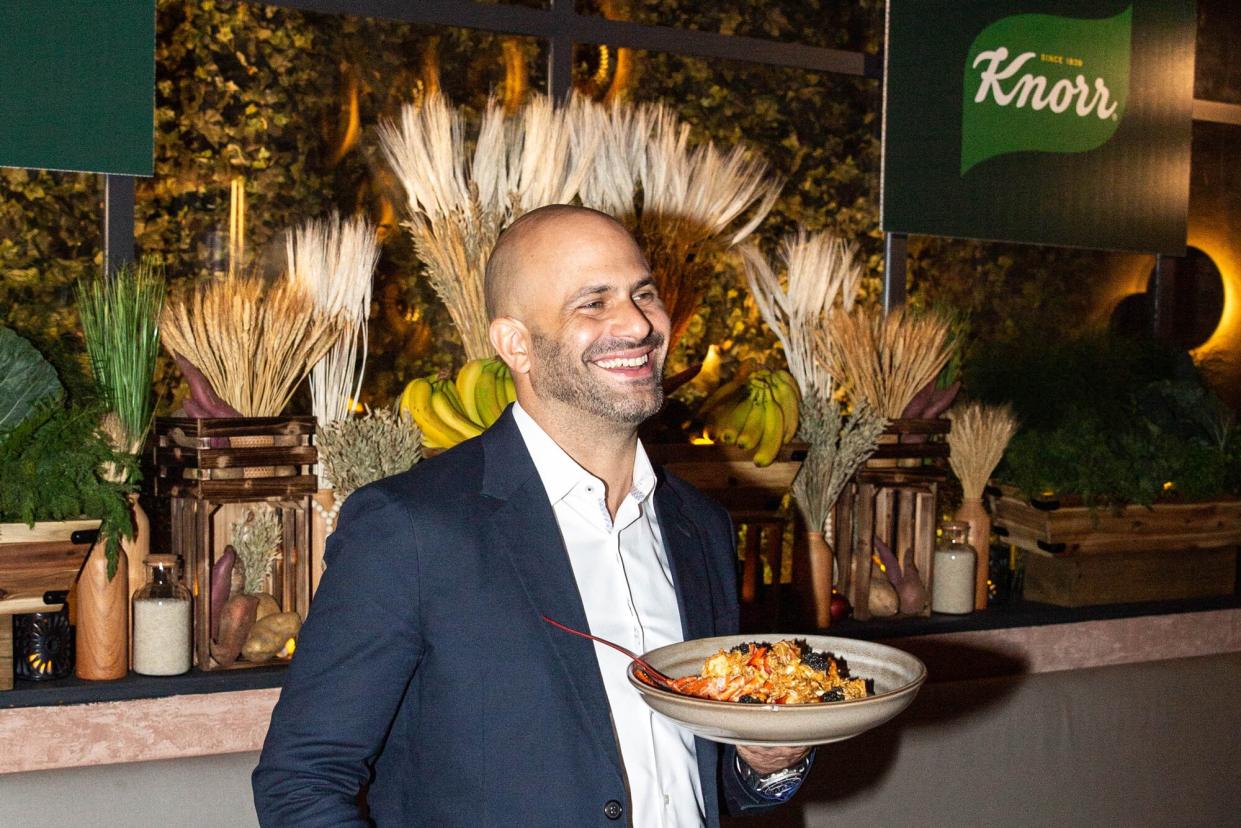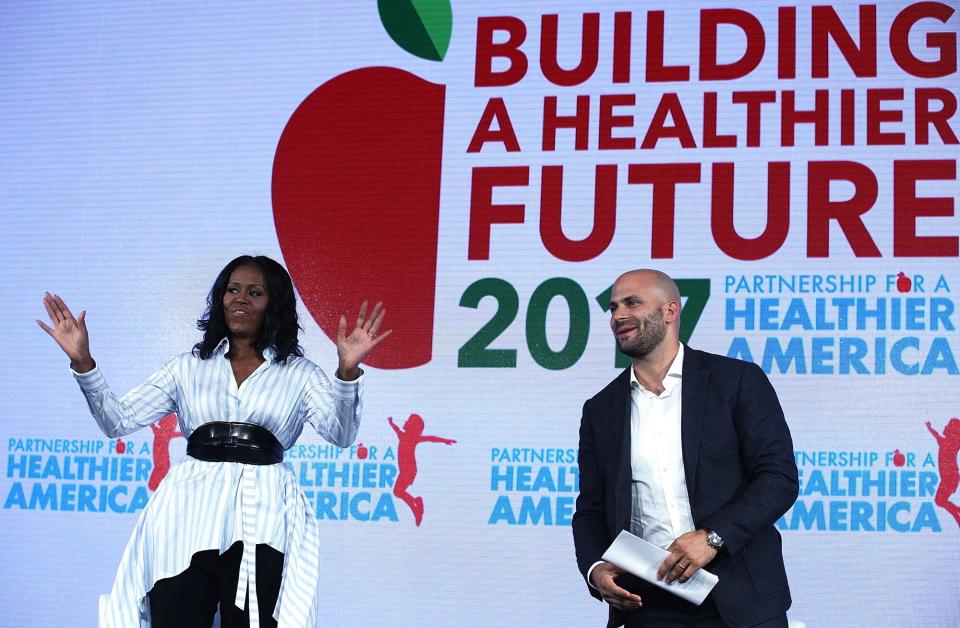Former White House Chef Sam Kass Says Products Like Coffee, Rice Will Be 'Largely Unavailable' in 30 Years

- Oops!Something went wrong.Please try again later.
- Oops!Something went wrong.Please try again later.
Knorr/Unilever
Worsening climate change threatens the future of our food, according to former White House chef Sam Kass.
Kass not only served as the Obama family's primary chef in the White House, but he also took on policy work while in D.C., serving as the executive director of former first lady Michelle Obama's Let's Move initiative and becoming the White House's first-ever senior adviser on nutrition. Now, he is turning his attention on creating a discussion about sustainable food and agriculture practices.
"A number of foods that we hold very dear to our hearts and largely take for granted are under a real threat," Kass tells PEOPLE. "And you're seeing in the future, we're on track for a lot of those to become quite scarce and some really to be largely unavailable to most people and others just significantly increased in cost."
Such products include everything from wine and chocolate to coffee, shellfish and rice, he says.

Alex Wong/Getty
He adds: "Food and agriculture is the number two driver of greenhouse gas emissions globally and uses about 70% of the world's waters. It's the number one driver of deforestation, land use change. It's really at the center of a lot of these environmental issues."
However, Kass explains that the industry has a massive chance to lessen climate change.
"Food and agriculture is the only real opportunity that we have to sequester enough carbon on the scale that science is telling us, within the time horizon that the science is saying we have, and that's really unique to food and agriculture," he says.
Kass emphasized this sentiment at the "$500 Dinner" last week in New York City. The name of the Knorr-sponsored dinner was not based on diners' bills; instead, the "$500 Dinner" was an event where Kass served a meal that cost $72 per person to make today — but in 30 years, the same dinner would cost $566.

Knorr/Unilever
The chef's menu highlighted foods that are at risk of becoming more expensive as they become increasingly rare. At the event, Kass specifically wanted to highlight rice since it is both a widely consumed food product across several cultures and one of the largest emitters of greenhouse gases, he says.
Kass applauds Knorr for taking steps to better its agriculture practices, which includes shifting supply chain efforts to minimize emissions. Adopting sustainable food practices isn't so difficult, he tells PEOPLE, adding that consuming less red meat, eating more beans and whole grains can go a long way.
"I think the future needs to be that it's just the normal that foods are grown in a regenerative way. It needs to become the new conventional," Kass says. "Conventional just means this is just how we're doing it. And going forward, my hope is...that in 20, 30, 40 years, what we say is conventional will be regenerative."

